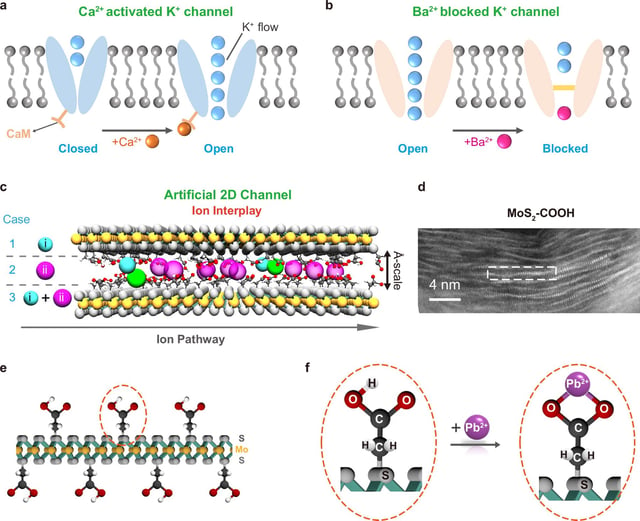Overview
- Researchers engineered angstrom-scale 2D nanochannels that mimic cellular ion gates to selectively regulate potassium flow.
- A 1 percent increase in lead ions bound to acetate groups doubled potassium transport by forming neutral potassium-chloride pairs.
- Cobalt and barium ions compete for binding sites and inhibit potassium passage by disrupting neutral ion pair formation.
- Custom non-equilibrium molecular dynamics simulations incorporating ion-induced dipole interactions confirmed the experimental transport behaviors.
- The team is now adapting the tunable system to other materials and ions, with a focus on lithium recovery and advanced water-purification applications.

